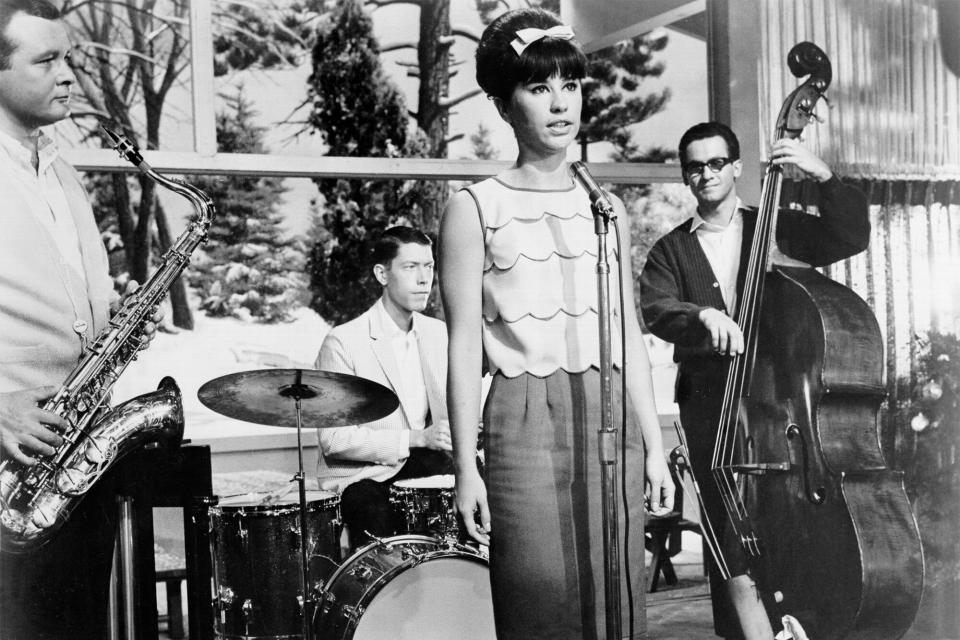Astrud Gilberto, 'The Girl From Ipanema' singer, dies at 83
- Oops!Something went wrong.Please try again later.
- Oops!Something went wrong.Please try again later.
Astrud Gilberto, the singer whose beloved recording of "The Girl From Ipanema" is often credited with bringing Brazilian bossa nova to the United States, has died. She was 83.
Her granddaughter Sofia Gilberto announced the news in an Instagram post on Monday, alongside a voice recording of Astrud singing.
"My grandma Astrud Gilberto made this song for me," Gilberto wrote in Portuguese. "It's called Linda Sofia. She even wanted my name to be Linda Sofia. Life is beautiful, as the song says, but I'm here to bring you the sad news that my grandmother became a star today. [She] is next to my grandfather João Gilberto."
Gilberto added, "Astrud was the true girl who took bossa nova from Ipanema to the world. The song, a bossa nova anthem, became the second most played in the world mainly because of her. I love and will love Astrud forever and she was the face and voice of bossa nova in most parts of the planet."
A cause of death has not been disclosed.
Born Astrud Evangelina Weinert in Bahia on March 29, 1940, the singer grew up in Rio de Janeiro. She married musician João Gilberto in 1959 and four years later, accompanied him on a trip to New York where he was set to record a song, 'Garota de Ipanema' ('The Girl From Ipanema'), with jazz artist Stan Getz and Brazilian bossa nova star Antônio Carlos Jobim. Hoping the single would reach an American audience, the session producer wanted an English-speaking singer to record the song. Astrud — who had no professional recording experience — happened to be in the room.

David Redfern/Redferns Astrud Gilberto
"Astrud was in the control room when Norm came in with the English lyrics," session producer Phil Ramone told JazzWax in 2010. "Producer Creed Taylor said he wanted to get the song done right away and looked around the room. Astrud volunteered, saying she could sing in English. Creed said, 'Great.' Astrud wasn't a professional singer, but she was the only victim sitting there that night."
The original version of the song, intended as a demo, was a duet with her husband. Later, it was re-edited without his Portuguese vocals into the solo single that would become an international sensation, winning a Grammy for song of the year and launching Astrud Gilberto's vocal career. The track became a global hit and boosted the profile of bossa nova music internationally.

Michael Ochs Archives/Getty Astrud Gilberto
After the recording experience, Gilberto said she was frequently asked to sing at family gatherings and events, where her husband would accompany her on guitar. She was angered by the false narrative that Getz and Taylor "discovered her," and in an interview said, "nothing is further from the truth."
"I guess it may them look "important" to have been the one that had the "wisdom" to recognize talent or "potential" in my singing," Gilberto said. "I suppose I should feel flattered by the importance that they lend to this, but I can't help but to feel annoyed at the fact that they resorted to lying!"
Astrud and João divorced in 1964. A prolific musician, she would go on to record 16 studio albums and two live records over the course of her career. "The Girl From Ipanema" was her only major hit, selling more than 2 million copies.
Related content:

